|
Do you ever have a gut feeling that you know you need to listen to? Our bodies are part of our minds and they speak to us every day. And when you pay attention, it can improve your life.
Sometimes your body knows what is right for you. It sends you signals. When your feelings are in a spin, the message from your body becomes very clear. However, the message or messages can become difficult to interpret when our mental health is in poor shape. Anxiety and inner conflict arise if our inner compass is cloudy and if our mind is at odds with itself in a constant state of cognitive dissonance. In my practice, I both encourage and educate my patients to learn how to listen to their own insides and actively tune into the sensations they experience in their bodies. By doing so, we can identify what is right for us and and feel empowered to take the small, safe steps towards healing. This type of somatic awareness can help us to become aligned in our thoughts, feelings, and actions. The gut feelings we experience are not just for emergency "fight or flight" situations, they are present all the time. Just as you are reading this blog post, if you focus your attention on the heart and gut regions of your body, you will begin to notice a response to my words. Just notice if any part of you feels my words to be true, or perhaps you feel "no that can't be true". Perhaps you notice your attention going elsewhere? Like reading ahead to see how much longer this post is? Just notice how quickly or slowly your body is able to take a complex situation and summarize it quickly, or moment by moment. There is to come on this topic, so stay tuned!
On the topic of self-awareness, are you aware that self-awareness makes you impenetrable to judgment? Say your name is John and I walk up to you and call you banana. You would most likely give me a strange look and know that I am wrong because you know your name is John. So me calling you banana is almost funny in a way because it is just not true. This same way of thinking can be applied to judgment and self-awareness because when you take the time to get to know who you truly are and begin to understand WHY you are the way you are, when someone else judges you, it becomes the John to the banana situation. You just know that what someone else is saying is not true. So instead of thinking "does this person know something about me that I don't?" You think "this person just does not know me so I am not going to waste my time giving them my energy". Get to know yourself so that you can be the one that holds the power over judgments that simply do not belong to you. You are not responsible for your first thought. You are, however, responsible for your second thought and your first action.
What does this mean? In other words, do not get mad at yourself for having disordered thoughts. Do not think that you are a failure or that you will never succeed. Instead, focus on your second thought: what can I do differently? What is the alternative and positive outcome of the situation? And then your first action: I am going to choose fear as a messenger that is trying to tell me what I need to do because I can get through it, instead of telling me what I shouldn't be doing because I fear that I can't. The first thought we have is often the thought or negative belief (or negative cognition) that is linked to an earlier memory. You have the power to tell it to get lost.
With Eye Movement Desensitization Reprocessing (EMDR) therapy becoming popularized as a mental health treatment, I would like to spend some time with you today talking about the various mechanisms of trauma and how it affects our brain and its functioning.
A primary question I often receive centers on the question of "what is dissociation" and "will I dissociate during EMDR?". Dissociation is a survival oriented process. Dissociation is the way the brain has the ability to take something that is so overwhelming when a patient cannot escape a stressful event and/or is caught in the freeze response. So for example, there might be a child being hurt by a caregiver. Children are often too small to run away or fight back. They are the victim of the grown up. What the brain does during this type of scenario is that it allows the child to be there and not be there at the same time. In other words, the dissociative process of the brain is protecting the child so they can survive the experience. EMDR therapy helps patients move through the dissociative process, which is inherent in any kind of trauma. EMDR helps the patient move through the experience with a much reduced rate of emotional arousal. For the previous thirty years when trauma and Post Traumatic Stress Disorder (PTSD) were added to the Diagnostic Statistical Manual (DSM), it only categorized trauma as specifically large or “Big T” events. However, adverse life experiences or “little traumas” can also have a major impact on social, emotional, psychological, and physiological functioning. I personally choose not to define trauma by “little” or “big” events. What is significant to me in my professional opinion is how the smaller, more repetitive patterns of events become recorded in the nervous system and because of its repetition, these experiences gradually accumulate in the brain. Where in the brain does this all get stored? Please allow me to introduce to you, if you have not already learned about the amygdala. The amygdala is within the right hemisphere of the brain, known for responding to a heightened sense of arousal. The amygdala translates information that it receives from the other parts of the brain into an emotional response. This type of response can manifest in a variety of ways within the body (e.g. heightened blood pressure, more rapid breathing, blood moving from the central part of the body to the peripheral, and the release of adrenaline). In my next post, I will continue to discuss two key symptom behaviors that are congruent with trauma: avoidance and rumination. Stay tuned! Athletes face various challenges in their career on and off the sports field. I feel that a greater knowledge of the conceptualization of mindfulness and its impact on psychological skills could truly shift the way athletes maintain and even improve performance before, during, and after game time. In the unforgiving environment of professional sports, dysfunctional thinking can impact and interfere with performance.
When working with professional athletes, I love collaborating with my clients to develop specific strategies to address dysfunctional thinking patterns and other challenges. Coping strategies offer athletes additional psychological opportunities to enhance his or her chances of performing at his or her highest level under very demanding, stressful, and sometimes even hostile conditions. Before going any further in this blog post, I believe it is important to give credit to where credit it is due. Mindfulness is popular and used generously among mental health professionals as treatment for a variety of mental health disorders, including most notably, anxiety and trauma-related disorders. My two personal favorite types of Mindfulness interventions are Mindfulness Based- Cognitive Behavioral Therapy, and Dr. Jon Kabat-Zinn’s Mindfulness-Based Stress Reduction (MBSR). I was first introduced to Dr. Kabat-Zinn and MBSR in graduate school. Although I attended Stony Brook University, I was offered the opportunity to enroll in a research-based elective, dually offered by Columbia University and it's Advanced Consortium on "Evidence Based Practices", and in reflection, I am so happy I accepted the opportunity! High performance athletes can experience a variety of performance-inhibiting stressors. Most frequently, my clients come to session and process topics that induce stress such as: unrealistic expectations because of perfectionism, competition anxiety, anger and other negative emotions, fear of failure, perceived pressure, and avoidance behavior. Additionally, other factors that can negatively impact performance include: having an avoidant coping style, interpersonal problems, or life-balance difficulties. However, similar to the most successful surgeons, athletes have the distinct superpower to transform stressors automatically into fuel in order to meet the specific demands of the game. In other words, athletes use this automatic process, similar to autopilot as a way to use stress as energy, resulting in enhanced performance. Most frequently this superpower is an alternative label for more well-known defense mechanisms such as "compartmentalization" and "sublimation". So if athletes have metaphorical black belts in compartmentalizing and channeling emotional and psychological stress into elite performance fuel, why are we focusing on Mindfulness? Mindfulness focuses on changing the function, not the form of behavior, emotion, thinking, or how we experience things. Mindfulness aims to change the relationship of thoughts and emotions. Mindfulness has no desire to change the content of those thoughts and emotions. How can this be integrated into elite sports? Perhaps breathing exercises can be introduced in a non-sport setting. Athletes can integrate mindfulness exercises directly during a big play when they focus on the breath or letting go of thoughts of pain or discomfort. One of my favorite techniques is using a body scan exercise. Again, thinking of how this can be woven into the tapestry of sport, a body scan exercise can be easily completed during the cool-down at the end of practice or training. I don’t want to suggest that using mindfulness will automatically lead to major shifts in performance overnight. But down the road with further inclusion of mental health support in professional sports, I think we will start to see a happier and overall healthier group of professional athletes and role models. Breathing is seriously underrated. Did you know you could improve your mood, contain anxiety, enhance sports performance, and pump the breaks just by taking a few breaths?
In previous posts, I have talked about the vagus nerve and parasympathetic nervous system. In short, the vagus nerve connects the brain to everything from the tongue, pharynx, vocal chords, lungs, heart, stomach, and intestines to different glands in the body that produce enzymes and hormones, influencing digestion, metabolism, and much more. The vagus nerve's influence on your lungs and heart and the connection to your brain is pretty awesome, considering this trio combined controls your body and governs your mind. To manage your state of mind and stress levels, all you have to do is activate the calming parasympathetic branches of the nervous system. Note: we typically do not have direct control over our nervous system, and we can't just press a button to turn the parasympathetic pathways on like a light switch. However, if you try to hold your breath for just a brief moment and then intentionally exhale very slowly, you can stimulate the vagus nerve and begin to feel grounded within your body and mind. In other words, I am encouraging you to train your breath. Swimmers are exceptionally good at this skill. Yoga is another activity that focuses on breath with movement. By actively focusing on your breath and the movements of your diaphragm, your autonomic nervous system will begin to communicate with your lungs, heart, and other organs for instant relaxation. Try to activate your own vagus nerve! How? Simply breathe out very slowly. Can you feel how your heart rate slows and your mind relaxes instantly? Although I am writing about a new skill, I am still encouraging you to learn from yourself. You are your best friend. Nobody knows you and your situation better than yourself. If and when you need the support, I will be here for you. Just let me know if I can help. Last Saturday I was so fortunate to take part in a Pure Barre class at the Jacksonville Jaguars Flex Field. The class was led by the owners of the Jacksonville and Ponte Vedra Beach Pure Barre studios and the field was packed! Pure Barre among other activities such as looking for shark teeth, surfing, are just some of the ways I nourish my own wellness. When I am well, I am able to connect with my clients, be more attentive and creative in my work. In taking time to prioritize my own wellness, I am able to be authentic and nurture my razor-sharp ability to attune to the needs of my clients. 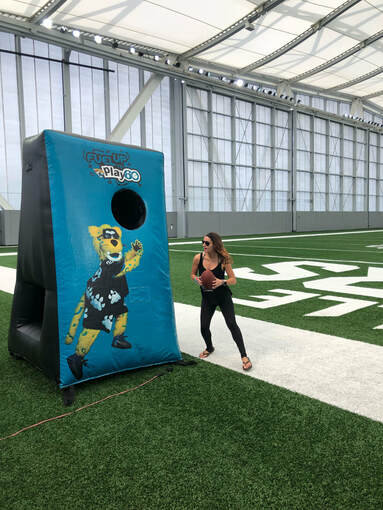 Wellness is one of the critical factors in being a mental health care provider. Wellness is especially important because mental health providers are one of the primary instruments in their own work. I feel it is incredibly important to walk the talk when it comes to offering a model of wellness or self care for clients. There are a variety of existing methods already in place to improve self-care. However, self-awareness is the first step to identify and configure a formula that will work best to create homeostasis between work, play, giving and receiving, accomplishing tasks, and doing absolutely nothing. The key to ongoing and lasting change is to pay attention to you and your body. Whatever profession you are in, the work itself can get in the way of your own wellness. And although you may be full of wellness tips for others, knowledge doesn't always translate into action for yourself. Awareness is the catalyst to change and if you can give yourself permission to change one thing, start small. Perhaps you will decide to change routine on your way home from work by practicing sets of deep breathing at each red light. Or take a moment to go outside just to feel the warmth of your sun on your skin during a bathroom break. How do you incorporate wellness into your routine? Share by leaving a comment below! I recently came across an article on the NBA's official website from March 12, 2019, describing a league-wide mental health initiative taking aim at addressing mental health and wellness issues for players.
This is wonderful news for athletes, the NBA, and families and loved ones of athletes as well! The battles professional athletes have with mental health issues shows that money nor fame can solve everything. More importantly, it shows mental illness does not discriminate. It can affect anyone. Whether you are struggling with a mental health illness, or you simply want to perform better mentally, the first step to working on your mental-emotional health is to be unapologetically open with yourself and recognize the emotions you are feeling. Above all, don't feel scared to reach out if you need someone to talk to. I am here to support you in all areas of your health. Mental health matters to everyone and I think this is an amazing step in the right direction for our athletes! You can read the original article by clicking here. What kind of space are you holding for others? Ask yourself this: am I listening to really hear what someone has to say? Or am I listening to respond?
If you listen to respond you will communicate with defensiveness. If you listen with curiosity you will communicate validation. When your child, partner, friend, and so forth wants to share something with you, he or she wants to be heard. Listen with curiosity, reflect what you heard, and offer validation even if you don't agree. Often times I am approached by parents who are seeking guidance to better understand and "get through" to his or her child. My response is usually simple and to the effect of: "Your child is telling you what they want and how they feel, the solution is to hear what he or she is saying". Seriously. Communicating with children and adolescents is easy when barriers to understanding are removed and words are genuinely heard. I always say, "healing begins the moment we feel heard". If or when you find yourself in a dialogue with your child, spouse, friend, and so forth, I invite you to really take a moment to listen and hear what is being said. Think of your mind as real estate property. Each time the wheels in your mind begin turning (e.g. thinking of a response, forming a judgment) the valuable property in your mind is being sold to ownership by judgment, emotion, and/or defensive thought. Using this metaphorical mental space example, giving the real estate to listening just to hear, sets the conditions for the development of mental property that is free from judgment and can gain equity through mutual understanding and connection. Remember, you can decide at any moment to designate the real estate in your mind to become open to limitless possibilities, including the possibility of holding a space for someone else to heal and feel safe. With all this big said, there is a beautiful quote I am so excited to share with you today and it is right below these final sentences. I hope you have a great start to your week! "The most basic and powerful way to connect to another person is to listen. Just listen. Perhaps the most important thing we ever give each other is our attention...A loving silence often has far more power to heal and to connect than the most well-intentioned words" - Rachel Naomi Remen  It was such an honor to spend time with one of my most beloved musical artists, Mike Love last Friday here in Jacksonville, Florida. Mike's son, Christian performed lead vocals for "God Only Knows" during this performance and it was truly a beautiful moment in time to be part of the experience. Amazing how a musical performance can really pump the breaks on the world as it exists for just a moment.
|
AuthorAmy Pope-Latham, LCSW is a board certified mental health professional in Ponte Vedra Beach, FL. Archives
December 2022
Categories
All
|

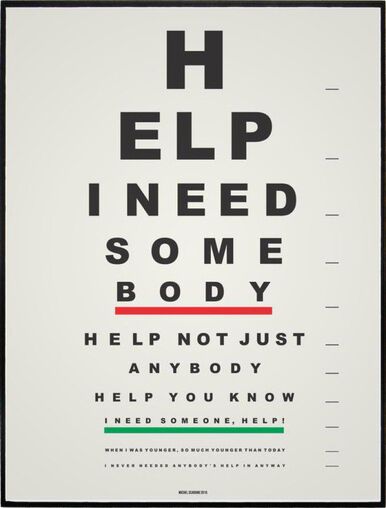

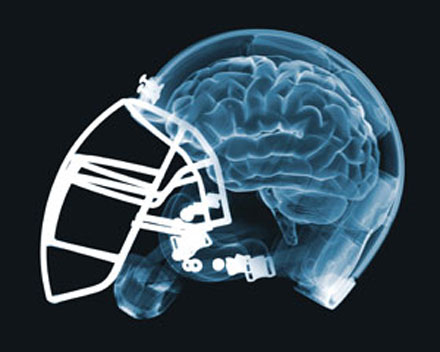
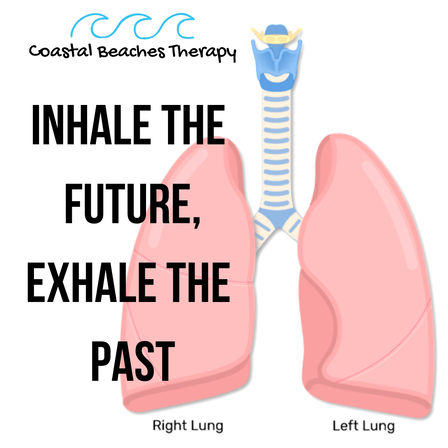

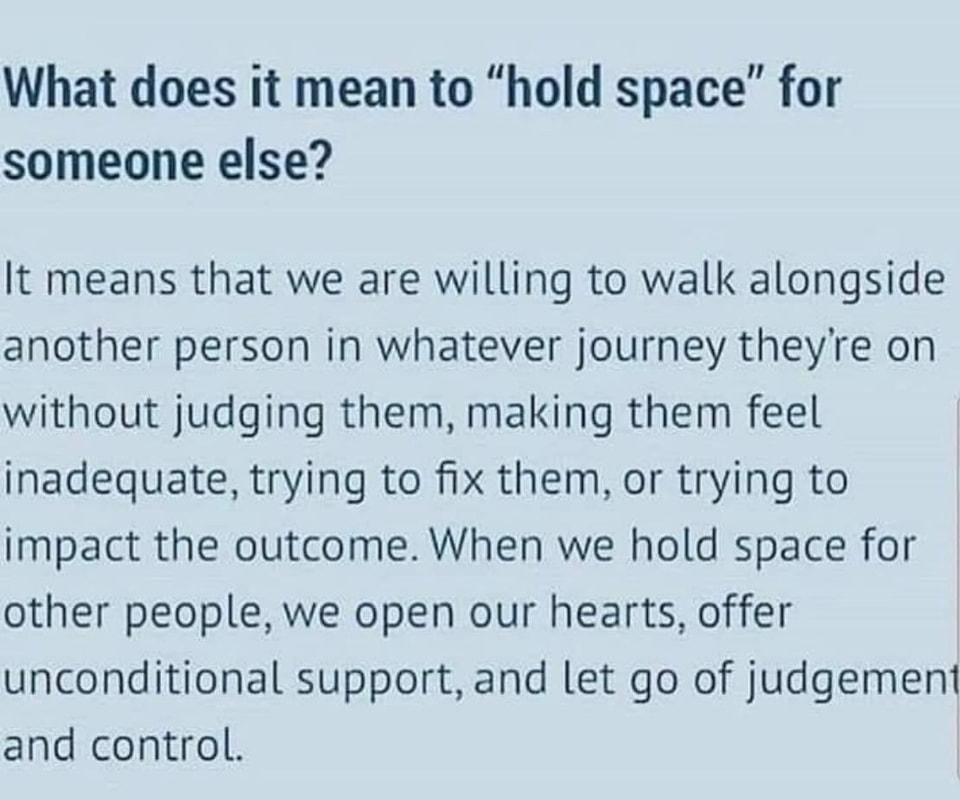

 RSS Feed
RSS Feed